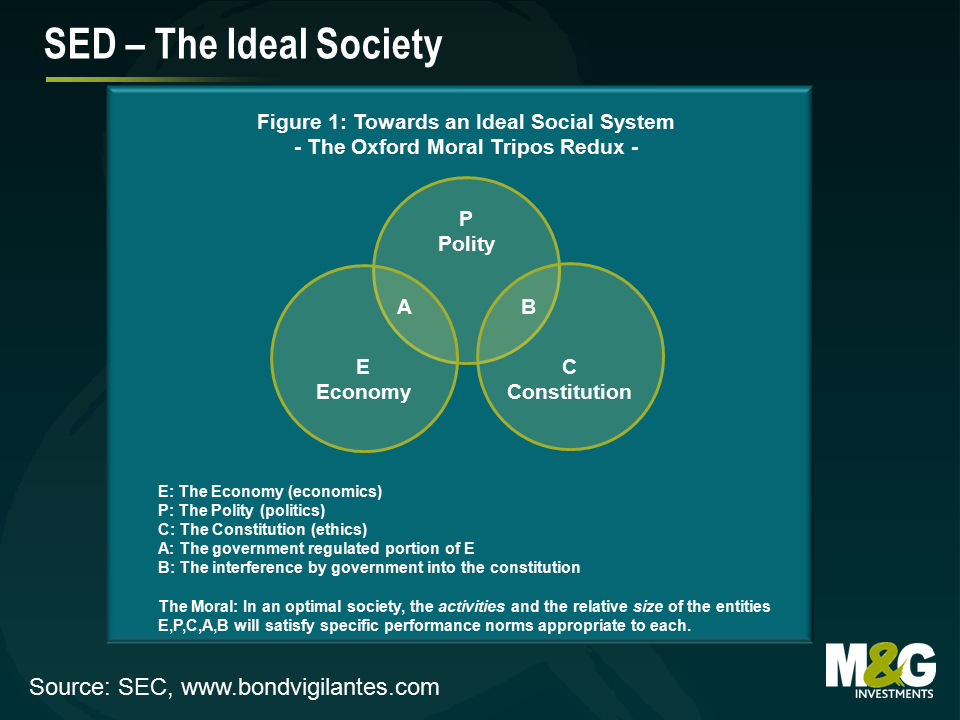From The Politics Of Economics To The Politics Of Society
As we had a three day weekend last week I used the opportunity of an extra day off to catch up on some reading. One of the pieces I read struck me as particularly pertinent given the elections on the continent last weekend. Woody Brock, the founder of the economic advisory service Strategic Economic Decisions (SED), regularly puts out thought provoking research reports discussing various topics encompassing economics, politics and philosophy. In his latest piece he has pulled all three strands together to discuss the conditions that are necessary for an ideal society.
The report is a fairly long piece but I will do my best to summarise. Dr Brock argues, and I tend to agree, that much of the debate about the current state of the world is too focused on creating an ideal economy. From the relative merits of western capitalism vs Chinese state capitalism to austerity vs growth policies in Europe the arguments are regularly hammered out in economic terms – potential GDP growth, inflation outcomes, effects on bond yields and so on. Whilst all these factors are important to our well-being they are not the entire story, one must also look to other elements that make up a society – politics and philosophy.
While Dr Brock feels that the optimal economy is one which essentially displays the characteristics of perfect competition he also accepts that government intervention is required to provide public goods (say the police) and to correct for negative externalities (e.g. pollution). Brock believes that the level of government involvement should be determined by the checks and balances written into a nation’s constitution/fundamental laws, or the collective philosophy of the people of the nation. In short, the constitution/courts are there to limit politicians’ powers to those that the people want to grant them, and politics is there to regulate the economy based on those parameters.
The conclusion that Brock comes to is that the optimal society is one in which these various spheres overlap as little as possible – politicians should leave the economy to its own devices as much as they can and not amend the constitution/laws that govern their own behaviour unless with good (social) cause. I’ve lifted the below diagram straight from the report to demonstrate this more clearly.
 It struck me as I was reading the report that if SED’s analysis is correct France has taken a step away from becoming an ideal society after electing Francois Hollande. He ran with a brazenly socialist platform – lowering the retirement age, creating subsidised jobs for the unemployed and creating 60,000 new teaching jobs.
It struck me as I was reading the report that if SED’s analysis is correct France has taken a step away from becoming an ideal society after electing Francois Hollande. He ran with a brazenly socialist platform – lowering the retirement age, creating subsidised jobs for the unemployed and creating 60,000 new teaching jobs.
The value of investments will fluctuate, which will cause prices to fall as well as rise and you may not get back the original amount you invested. Past performance is not a guide to future performance.


18 years of comment
Discover historical blogs from our extensive archive with our Blast from the past feature. View the most popular blogs posted this month - 5, 10 or 15 years ago!


Bond Vigilantes
Get Bond Vigilantes updates straight to your inbox





